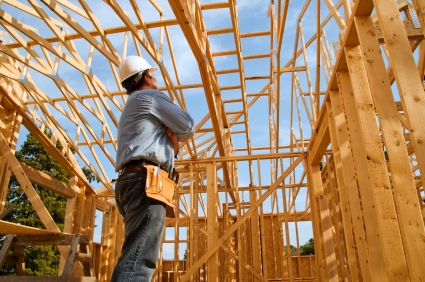Answered by http://www.quora.com/Jack-Calnan
First of all, lets determine what a successful building project is. We have three simple Key Performance Indicators (KPIs) we can use to assess this, none more important than the others without further information about your particular project;
1. Cost (preferably low)
2. Quality (preferably high)
3. Time (preferably low)
These can be weighted differently depending upon your project. For example, if your project is for investment purposes, Cost will of course be most important. If you are building a multimillion dollar property, you are going to be most interested in Quality. If the project is a school being built in time for the start of term, Time trumps the others. However, all three KPIs will always be of some importance and worth considering. It is also important to note that they play off against each other. Or in other words;
- As Cost decreases, Quality decreases and Time increases
- As Quality increases, Time and Cost increase
- As Time decreases, Cost increases and Quality decreases
You need to weight these KPIs at the outset so that you can judge the success of your project afterwards.
Now, all three of these should be declared expressly in the Contract. If they are not, the Contractor will only be bound to a level of reasonableness for all three aspects. Cost should be determined by a fixed Contract Sum in most cases, Time by a Contract Period (or Programme) and Quality by a set of agreed upon Architectural drawings, Specifications and Schedules of Work.
So, you have all these agreed at the outset, and you are happy. Nothing can go wrong, right?
Wrong!
The things that will impact your project more than anything else can all be placed under the rather wide umbrella of Unforeseen Events.
Buildings are unique in that they are built in the open environment of the world. And environment we have very little control of. Existing buildings can sometimes be like their own ‘open environment’ because who knows whether the Contractor that built the building in the first place followed the planning documents that you are using to determine the work that needs to be done for your project. There are always – trust me, ALWAYS! – things that come up that no-one could have foreseen. Under most contracts, it will have been the Clients responsibility to discover them, and the Contractor will deserve additional Time and money (Cost) for any additional work as a result.
How do you overcome this?
Essentially, it is impossible to overcome everything. If you were to do ALL the soil investigation, or investigations into the existing structure, you’d be doing ALL the excavation, demolition and opening up work for the Contractor. But you can ensure that you are as thorough as possible. So many projects come up against obstacles that could have been overcome with the smallest of extra checks.
Assuming you are not a construction professional, it would be impossible for you to have the expertise and therefore foresight to carry out the correct thorough investigations. Employ a construction consultant (maybe an architect but preferably a surveyor, who can help with cost planning too) to do this for you. It might be a big outlay of cost at the start, but it is likely to be very worthwhile.
Another big factor is client indecision.
At tender stage, you will receive a number of competitive tenders from your chosen contractors. They will be trying to win your business by telling they can trump the others by achieving the Quality you have told them you need (drawings, specifications, or maybe just a client brief) in the shortest Time and at the lowest Cost. This competitive stage is you last chance to get a competitive Cost.
Most contracts are set up so that any client led Variations (including those as a result of unforeseen events and client indecision) are valued at ‘Contract Rates’. This means that the same competitive Cost should be applied to the additional work. However, this is rarely the case. You will end up paying through the nose for post-contract variations. Avoid them as best you can.
Finally, and this may be a specifically UK problem, watch out for Provisional Sums. This is what the Contractor will include if he is unsure of what is required, or if he feels the information is insufficient, for a particular item of work. He is not bound to this figure whatsoever. You can shout and argue as to why it now costs double and how could they not have seen that, but contractually, he is entitled to revalue it at ‘Contract Rates’, i.e. again, you’ll pay through the nose for it.
By the way, when I say ‘through the nose’, I don’t mean that the Contractor will lie and cheat. In my experience, Contractors are fairly honest when it comes to clients, as that’s where the next cheque is coming from. But they will have a far better understanding of the contract than an unskilled client, and no competition, and they will therefore use the contract to increase their compensation, in both Time and Cost if they are able.
Finally, and most importantly, be open and honest with each other. Dispute Resolution is effective these days, but the term ‘Win’ is a misnomer. Nobody wins. Everyone goes home grumpy and feeling like they’ve lost out. Sit down with your Contractor and talk through each aspect of the project before the contract is signed. Sweep away any stumbling blocks, ensure everyone is happy with where design responsibility lies, what you wish to achieve etc etc. The Contractor will appreciate this and is likely to be much more helpful if he feels like you are all on the same team.












